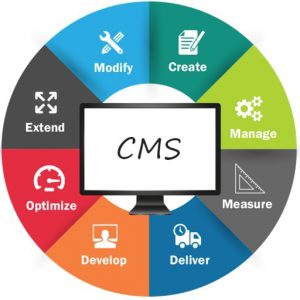
We are all dependant on technology nowadays – we need it for work, meeting people, and even when we are relaxing by watching TV shows or betting online with Betsafe Bonus. However, even though we use it every day, tech slang often gets people confused, right? With all the abbreviations and acronyms, how can anyone get the hang of what is what? Well, once you get into it, it gets automatic, for most of the time. The acronyms become synonymous with some things.
Today’s topic is CMS. So, what in the world is a CMS?! CMS stands for Content Management System, as the title might suggest. They are used just for that, but not offline or wherever, mostly online, for sites.
They do plenty of things, and are mentioned under various names CMS System, for the sake of redundancy, Web CMS, Web Content Management System, CMP or Content Management Platform, and many more. They all basically refer to the same thing, a CMS.
In order to understand what a CMS does, first we need to understand how sites work.
How Sites Work – Why We Need a CMS

Sites often use simple languages like HTML, CSS and Javascript. Those would be the essentials, without which you could not make a site. They are used for content, meaning pictures, text, basically what you see on the site. But, these things are just the forefront of the site.
The back part, the one you rarely get to see unless you are a developer. The backend of a site can be written in anything from Java, PHP, to C++ or even C, depending on how fast and optimized the site needs to be.
A CMS is used to allow a site administrator to access and manage the data on the site without much hassle. They can be simple, for regular sites which do not have many interactive components, or very complex, for forums or ecommerce sites.
How to Use a CMS – The Basics

For starters, you would need to choose a CMS. If you haven’t already got the idea of what a CMS is, think of it this way, WordPress. That is a CMS. You can download it and install it on your server in just a few minutes, and you’re good to go. You have an easy way to install a theme and make yourself a great site. There are other CMSs, like Joomla, Squarespace, Magnolia, Wix and many more.
You can simply download the necessary software and install it. Most of these come with their own themes or presets, which will create a site for you in under a minute.
They are also easy to manage and use, so you, as a newborn web administrator, will not have to spend years learning how to code in order to have a functional site.
Should You Use a CMS? – Are They Always Applicable?
Well, yes and no. Are you running a small site which is only used to get people to interact with you? Then, yes, absolutely, use a CMS, don’t waste your time and money on additional resources.

Are you planning on starting your own ecommerce business? Then you might consider having someone build you a platform from scratch. Are you in a security-oriented business? Then you shouldn’t even be considering a CMS. A CMS has its own application, especially commercial ones. Custom CMSs are a different story, as they are always built to suit a specific need.
With all of this, you should have a better understanding of what a CMS is and how you could use it to better your administrator experience.



